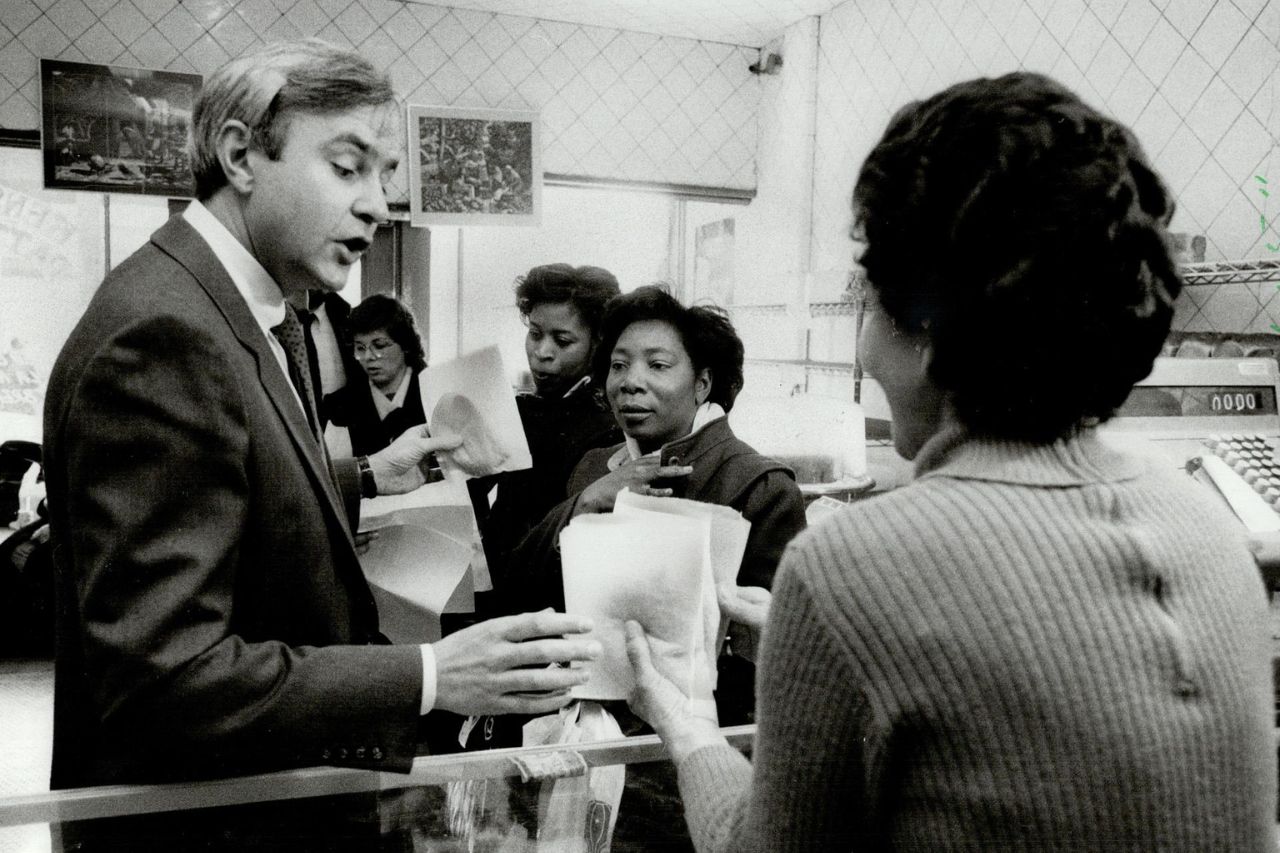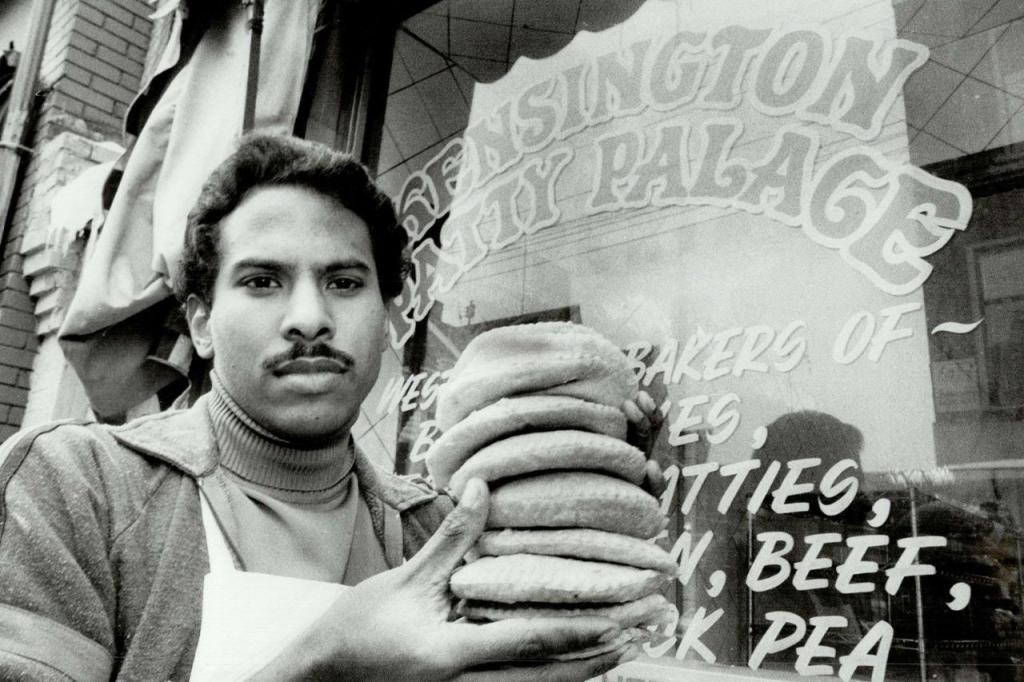
Whether you’re enjoying them in Toronto’s Kensington Market or while passing through your favourite subway station, the Jamaican patty is an iconic Toronto food. Dubbed “Toronto’s favourite snack”, the Jamaican patty (originally the beef patty) are flavourful savoury hand pies originating from Jamaica. Jamaican patties come in a variety of flavour combinations from classic spiced beef to chicken, Canadian saltfish and sweet ackee. But did you know the Jamaican patty also represents one of Canada’s most infamous fights for food sovereignty?
First introduced to Canada during the ’60s and ’70s by Caribbean migrants, the Jamaican patty soon became a staple in Toronto’s growing food scene. This popularity did not go unnoticed: In 1985 the Canadian government took to local Jamaican bakeries in an effort to legislate the patties. This heavily publicized battle of the beef was aptly named the Patty Wars. At the forefront of this fight was Michael Davidson, the manager of Kensington Patty Palace in Toronto’s Kensington Market neighbourhood. Davidson, alongside a few other bakery owners, worked tirelessly to defend their right to produce patties under their original name. So it begs the question, how did this beef start? And why was the Canadian government so salty about it? Let’s investigate.
Related: ByBlacks Restaurant Week is Back, Here’s Everything to Know
A tale of two patties
Originating from Jamaica by way of East Indian and African influence, the Jamaican patty made an impression on Canadian consumers during the ’70s and ’80s. During this time, meat production was at an all-time high with fast food chains and grocery retailers purchasing Canadian meat products by the millions in metric tons. During that period, bakery owners were selling Jamaican patties under the name beef patty, as they did back in the Caribbean. At the same time, big fast food chains referred to hamburgers as beef patties under the guidelines of the Meat Inspections Act. The Act qualifies beef patties as seasoned meat not encased in any dough. Commercial retailers caught wind of this nomenclature and flagged an inspector at Consumer and Corporate Affairs to investigate. This marked the beginning of the infamous patty wars.

Tony Bock/Toronto Star via Getty Images, Provincial Liberal leader David Peterson visiting the Kensington Patty Palace ordering patties for himself.
Big beef in Parliament
From the ’60s to 70s, many Caribbeans were immigrating to Canada due to government amendments on race qualifications to the national immigration policy. Originally, the policy focused heavily on skin colour as being an important determining qualification for entry into Canada. The changes in 1962 focused more on immigrant’s education, and in 1967 was adapted to reflect a point system as the government saw massive declines year-over-year in European migration. With the increase of Caribbean immigrants by the thousands, this lead to more diverse enterprises within Canadian cities, primarily that of small hospitality businesses.
During the height of the Patty Wars, the businesses who sold Jamaican patties were targeted by inspectors and legislators for not adhering to the criteria under the Meat Inspections Act. Business owners argued against this and ushered a nation wide protest against the government. The government demanded changes to the names, signage and packaging with a fine of $5,000 – $11,000 if vendors did not comply. Michael Davidson cited his disapproval with this approach as it gave way to erasing the history and heritage of Jamaican food. With public scrutiny surmounting, Davidson and his fellow patty vendors were invited to speak with politicians on February 19, 1985 in an effort to resolve this issue.

Ron Bull/Toronto Star via Getty Images, Business manager Michael Davidson of the Kensington Patty Palace holding a stack of patties
A half-baked solution
After hours of discussion and debate, the Canadian government conceded to conditional amendments to the commercial use of the name patty. Business owners were then allowed to sell patties under the name Jamaican patties to ensure proper distinction amongst other Canadian beef products and maintain cultural heritage. Dubbed a big win for Caribbean’s and patty vendors alike, February 23 was named Patty Day in Toronto in celebration of this historic achievement. So the next time you’re enjoying a deliciously spicy Jamaican patty in Toronto, remember that this was all made possible through the passion and determination of a few Caribbean-Canadians.
